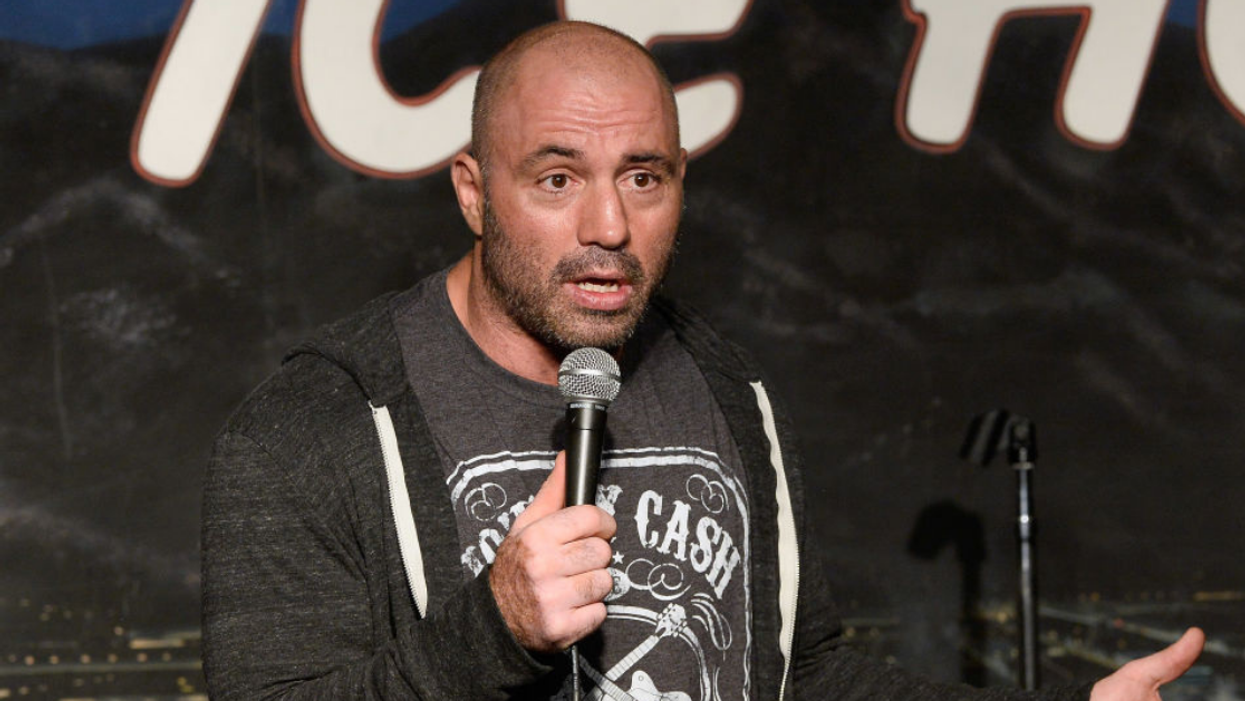Comedian and commentator Joe Rogan has come under fire after he tweeted a false story claiming that Ivermectin, a toxic anti-parasitic used to treat parasitic worms, lice, and skin problems mostly in livestock, was shown to be effective against COVID-19's Omicron variant in a Phase III clinical trial.
Rogan, who had mere hours earlier apologized for spreading misinformation about COVID-19, later deleted the tweet, but it is available after being archived online by CNN fact checker Daniel Dale.
The news agency Reuters, which originally published the story, later issued a correction noting that Kowa Pharmaceuticals, the company conducting the trials, did not say that Ivermectin had been shown to be effective.
Ivermectin has not been shown to be effective in preventing or curing COVID-19 infections. The Food and Drug Administration (FDA) has warned advised individuals to stop taking it after receiving reports that people had been hospitalized for using the drug.
In an official advisory, the FDA said that given the number of deaths that have been attributed to COVID-19, “it’s perhaps not surprising that some consumers are looking at unconventional treatments, not approved or authorized by the Food and Drug Administration (FDA).”
The agency noted that using any treatment for COVID-19 that’s not approved or authorized by the agency itself "unless part of a clinical trial, can cause serious harm.”
Rogan tested positive for COVID-19 in September; at the time, he admitted he had treated himself with Ivermectin and claimed his "natural immunity" is reason enough not to get vaccinated, a claim that has long been debunked by Centers for Disease Control and Prevention (CDC).
Mere hours before sharing the story, Rogan insisted that he is not "trying to promote misinformation" on his podcast, The Joe Rogan Experience, claiming that he uses his platform "just talk to people and have interesting conversations."
But his decision to share the tweet has drawn significant criticism and is widely perceived as evidence that Rogan has not changed his habits.
The controversy surrounding Rogan and his podcast erupted in the last week after musician Neil Young threatened to cancel all of his music availability on Spotify, saying the company is "spreading false information about vaccines" because it distributes Rogan's podcast.
Young, in a since-deleted open letter, accused Spotify of "potentially causing death to those who believe the disinformation being spread by them" and said he could not in good conscience have his music distributed by a company that has played a role in spreading vaccine misinformation.
Young's demands come as public health experts urge Spotify to block Rogan, whose podcast is the most-listened to podcast on the audio-streaming service.
Young was praised for speaking out. Spotify said it would respect his wishes of removal, though it chose to keep Rogan's podcast on the service. Spotify later said it will add a content advisory to any podcast episode about COVID-19, adding that it would for the first time publicly post its long-standing Platform Rules.














 @DuncanCecil/X
@DuncanCecil/X @@realDonaldTrump/Truth Social
@@realDonaldTrump/Truth Social @89toothdoc/X
@89toothdoc/X @xray_media/X
@xray_media/X @CHRISTI12512382/X
@CHRISTI12512382/X
 @sza/Instagram
@sza/Instagram @laylanelli/Instagram
@laylanelli/Instagram @itssharisma/Instagram
@itssharisma/Instagram @k8ydid99/Instagram
@k8ydid99/Instagram @8thhousepath/Instagram
@8thhousepath/Instagram @solflwers/Instagram
@solflwers/Instagram @msrosemarienyc/Instagram
@msrosemarienyc/Instagram @afropuff1/Instagram
@afropuff1/Instagram @jamelahjaye/Instagram
@jamelahjaye/Instagram @razmatazmazzz/Instagram
@razmatazmazzz/Instagram @sinead_catherine_/Instagram
@sinead_catherine_/Instagram @popscxii/Instagram
@popscxii/Instagram
